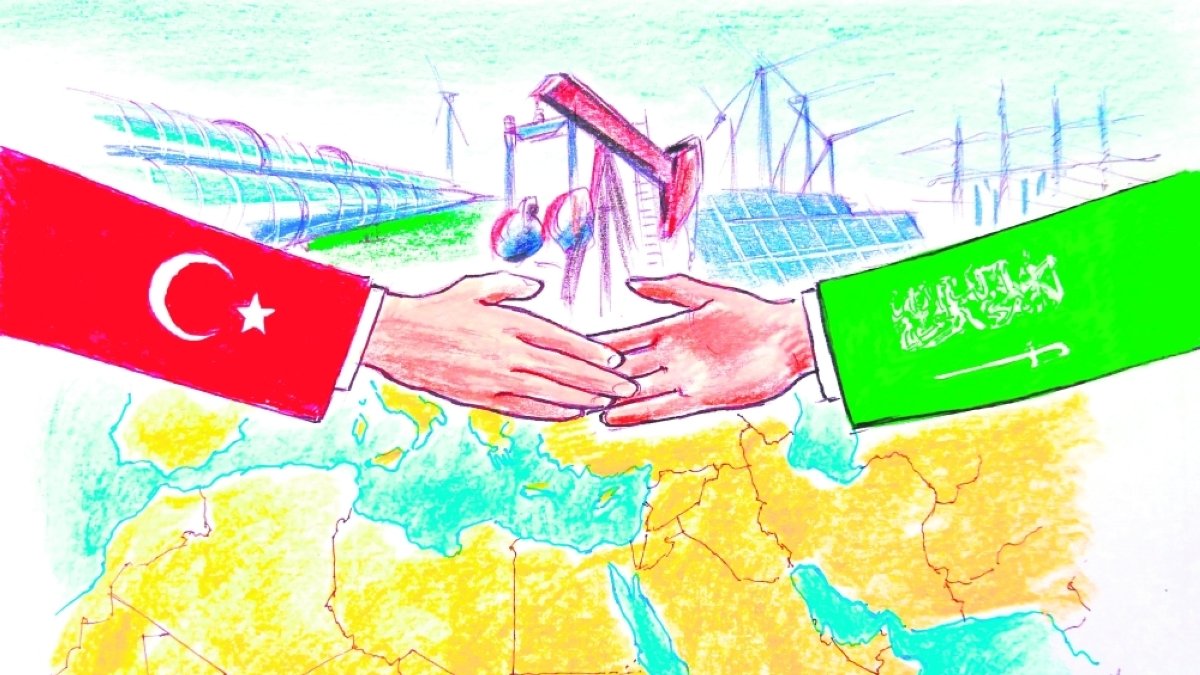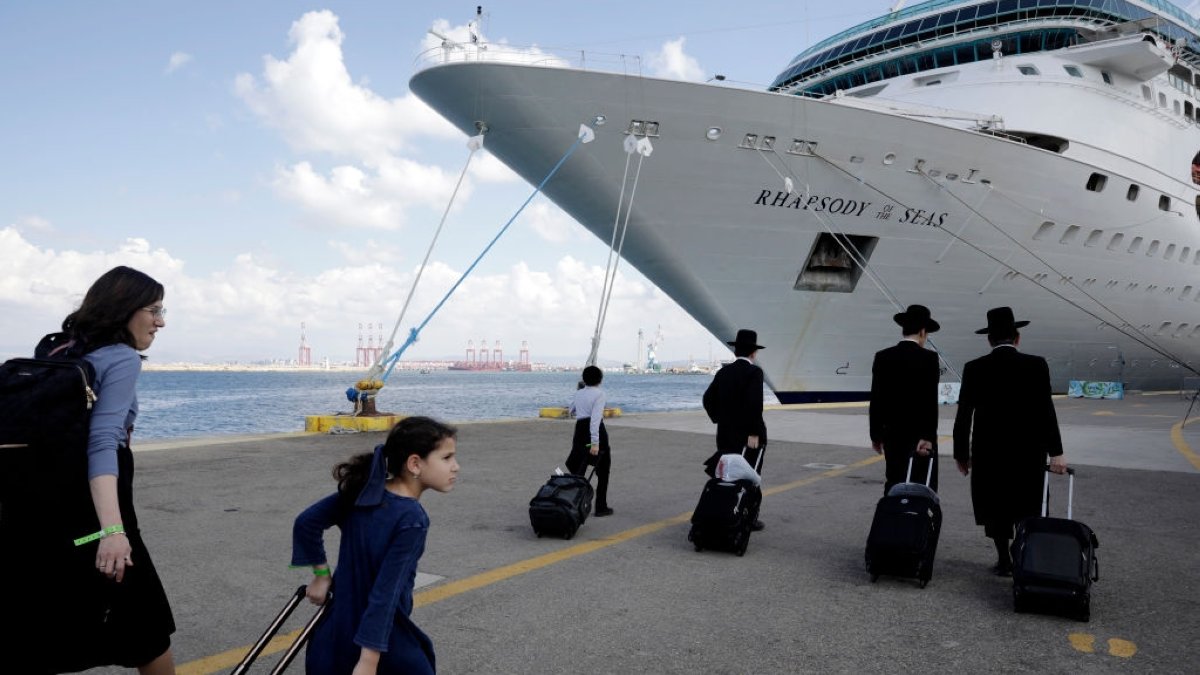Türkiye and Saudi Arabia’s joint quest for regional order
Source: DAILYSABAH
Over the past quarter-century, the Middle East has endured a series of upheavals, from the Gulf War to the Arab Spring, from Israel’s occupation of Palestine to the devastating war in Yemen. These crises have shaken not only domestic balances but also the fabric of regional relations. Ties between Türkiye and Saudi Arabia have also been affected, sometimes reaching breaking point. The crisis of confidence that emerged around 2014 deepened over the years, but after 2021, both countries saw the need to recalibrate their foreign policies, paving the way for normalization. What truly matters, however, is that this rapprochement is producing positive outcomes nationally, regionally and globally.
The normalization of relations between Türkiye and Saudi Arabia holds the potential to create a new diplomatic balance on key issues, including securing energy and trade routes, combating terrorism and radicalism, enhancing ties between the West and the Islamic world and addressing regional crises. After years of tension, the main driver behind rapprochement has been the shifting balance of power in the Middle East. Previous competition on different fronts only produced unresolved disputes. However, Iran’s expanding influence, Israel’s destructive policies and the West’s neglect of Syria deepened regional fault lines. Add to this the fragility created by rivalries in Iraq, Saudi Arabia’s stalemate in Yemen, Lebanon’s instability and Libya’s division, the need for Ankara and Riyadh to come together becomes clear.
In this climate of chronic chaos, a stronger Türkiye-Saudi partnership could play a decisive role in managing crises and lowering tensions. Both countries bring military strength, economic resources, political weight and religious legitimacy. Unlike the deep groupings of the 2017 Qatar crisis, the focus is now on economic cooperation and stability, a strategy that reduces intra-Arab disputes. Acting harmoniously within platforms such as the Organisation of Islamic Cooperation (OIC) and the G-20 also provides a stronger basis for negotiations. This rapprochement is therefore more than bilateral; it represents a structural change that reduces the region’s conflict potential.
Benefits of alliance
One area where Ankara and Riyadh had diverged was Syria. Ankara, motivated by humanitarian concerns, border security and migration, took an active stance on the ground, while Saudi Arabia provided mainly financial support to the opposition. In recent years, Riyadh has stayed warm to normalize relations with former regime leader Bashar Assad, but both countries have since shifted to supporting Syria’s recovery and opposing Israeli occupation. Türkiye’s diplomatic and military reach, combined with Riyadh’s financial clout and influence within the Arab League and the Gulf Cooperation Council (GCC), lends weight to this alliance in shaping Syria’s future.
On Palestine, halting Israel’s aggression in Gaza, ending the occupation and pushing for a two-state solution with East Jerusalem as its capital all require not just Ankara-Riyadh cooperation but also wider international support. To end the tragedy in Gaza, building global pressure on Israel is essential. Türkiye’s diplomatic activism and Saudi Arabia’s symbolic role in the Islamic world make their joint stance crucial. The recent U.N. discussions on Gaza underscored the urgent need for a joint diplomatic roadmap to address these challenges.
Another top priority is curbing Iran’s influence through its “network of militias.” Groups such as the Popular Mobilisation Forces in Iraq, Hezbollah in Lebanon, Shiite militias in Syria and the Houthis in Yemen pose threats across the region. Türkiye’s NATO-backed hard power, combined with Saudi Arabia’s financial leverage and symbolic weight, could provide real deterrence.
Iraq is also particularly significant. Turkiye cannot ignore it because of the threat the terrorist organization PKK poses and its ties to Turkmen communities, while Saudi Arabia seeks to reduce Iranian dominance and support reconstruction. Joint investments, energy deals and security cooperation could free Baghdad from dependence on Tehran. Lebanon, collapsing under Israeli pressure and Iranian influence, also illustrates the need for this partnership: Riyadh’s historical role and Ankara’s community ties could strengthen Beirut’s state institutions against Hezbollah.
Testing grounds for co-op
Over the past decade, disputes over energy and maritime boundaries have turned the Eastern Mediterranean and Africa into zones of competition. However, there are also areas where Turkish-Saudi cooperation can bring about results. Türkiye holds military and geostrategic advantages, while Saudi Arabia wields influence in global energy markets. Riyadh’s ties with Cairo and Athens could expand Ankara’s diplomatic channels, paving the way for more inclusive energy cooperation.
The Türkiye-Saudi partnership also has the potential to yield results in Libya and Sudan by balancing the influence of foreign actors. Today, Ankara’s military and diplomatic weight is proving effective in easing tensions, building stable institutions, and setting election timelines. When combined with Saudi Arabia’s leverage over Egypt’s el-Sissi government and, to a degree, over Gen. Khalifa Haftar, real progress toward resolution in Libya is no longer unrealistic.
A Libyan settlement could also indirectly contribute to resolving the crisis in Sudan. Cutting off the flow of weapons and ammunition from Libya’s southeastern desert – primarily through the al-Kufra and al-Awaynat corridor – to the Rapid Support Forces (RSF) and other militias would restrict their mobility and increase pressure for negotiations. This, in turn, could bring Sudan’s civil war closer to an end.
Chance for lasting order
The rivalry of the past cost both countries politically and economically. The dialogue launched after 2021 opened the door to shared gains. Türkiye is set to contribute to Saudi Arabia’s Vision 2030 projects through defense products, such as Bayraktar drones and construction services in megaprojects like NEOM, while Saudis can support Türkiye’s energy and infrastructure goals.
It may still be too early to call this an alliance. Nevertheless, this cooperation, based on a win-win logic, could contribute to the stability of the Middle East and global stability. Israel’s attack on Doha on Sept. 9 and the reality of the U.S.’ unwavering support for this Zionist aggression have clearly exposed regional security risks. This has prompted Gulf countries to seek alternative security arrangements, increasing the likelihood of initiatives like the Saudi-Pakistan Strategic Defense Pact emerging along the Ankara-Riyadh-Doha axis soon.
To counter Israel’s attacks, which began in Gaza and have spread across the region, cooperation between Türkiye and Saudi Arabia is becoming increasingly vital with each passing day. By strategically combining their complementary strengths, Ankara and Riyadh can reduce tensions and create a peace-oriented order from Syria to Libya. Expanding this partnership would alleviate chronic tensions, foster inclusive security, and enhance energy supply security and trade corridors. Such cooperation would also help Europe struggle against irregular migration, making its benefits global and regional.
The original article: belongs to DAILYSABAH .


